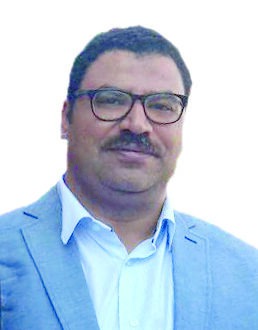Information and data systems were key for pandemic response. They were necessary for providing essential evidence for taking action, making the most informed decisions possible, and adjusting policies to allow for better thinking on actions to improve health.
Emerging technologies and automation should have the potential to improve public health like never before in the history of humankind. However, the findings of the third edition of the United Nations World Data Forum (UNWDF), which concluded in the Swiss federal capital on October 6, uncovered huge data gaps that still hinder the people’s ability to understand the world around them and of course were able to save many lives if they had been bridged.
This year’s edition of the UNWDF aimed to tackle data challenges in the context of sustainable development goals, including “leaving no one behind” and “understanding the world through data”.
At the beginning of the forum organisers revealed that the world is still faced with huge data gaps, with 40 per cent of countries having no birth or death registration system – a basic source for governments to protect their populations.
A second year into the pandemic, only 60 countries had data on Covid-19 infections and death rates.
Data usually are known to be the raw facts and figures that can become information when massaged and placed in the right context.
“Disaggregated data is needed to contain the disease and for citizens to understand the world around them and guide their actions,” Stefan Schweinfest, Director of the United Nations Statistics Division said.
One of the main points for discussion was how to ensure that data empowers individuals and communities – but also protects them if and when they are most at risk.
The forum also highlighted the urgent need to make data smarter and utilise emerging innovations to increase the amount and improve the quality of data, especially in time of crises when we need it to react and predict and know what is happening, what the impact is, what could happen later.
Better data also supports good policies and effective government action.
Data-driven decision-making is crucial to ensure that the outcomes meet the needs o0f the people.
Good policies should rely on quality data to determine the best solutions to some of our greatest challenges, including climate change, poverty and inequalities.
Thinking of the life-saving impact that data can have and how better data and forecasting could have helped avert many deaths from natural disasters, may be seen as a good motivator for the world to think seriously about enhancing the capabilities of all countries in this area.
With the existence of advanced data-gathering technologies, we just need to enhance our co-operation to make sure that we are not leaving anyone behind.






Discussion about this post